Introduction
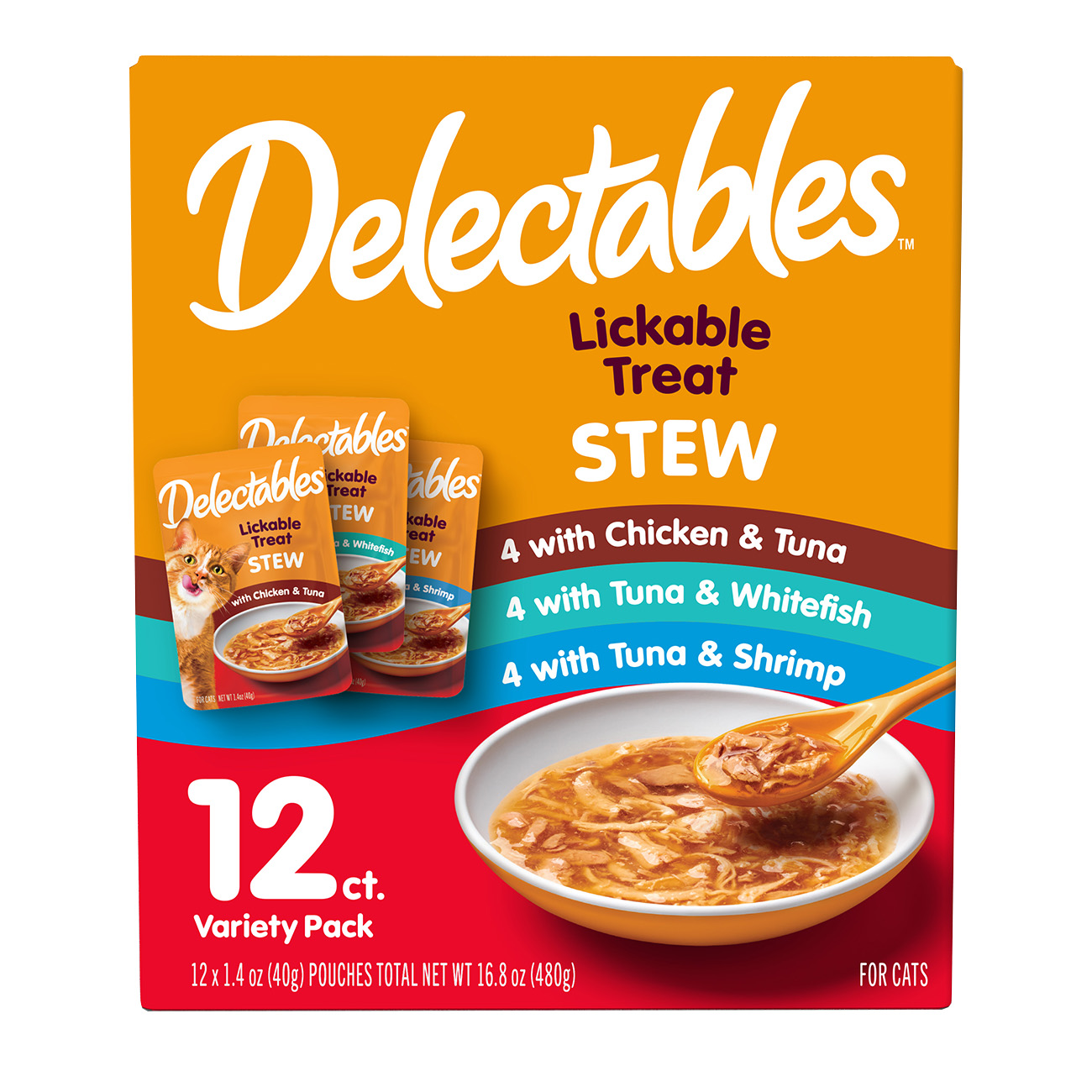
Fish treats for felines offer a nutritious and flavorful addition to your cat's diet. Packed with essential nutrients and omega-3 fatty acids, fish treats can provide numerous health benefits for cats. While some pet owners may have concerns about fish treats, understanding the different types available and how to choose the right ones can alleviate any worries. In this article, we will explore the benefits of fish treats, types of fish treats available, feeding guidelines, precautions to consider, and even provide some simple homemade fish treat recipes.
Why fish treats are beneficial for felines

Fish treats are beneficial for felines due to their rich nutritional content. Fish is a great source of protein, omega-3 fatty acids, and essential minerals like zinc and selenium. These nutrients promote healthy skin and coat, support cognitive function, and contribute to overall well-being in cats. Additionally, the taste and texture of fish treats make them highly palatable for our feline friends.
Common concerns about fish treats for cats
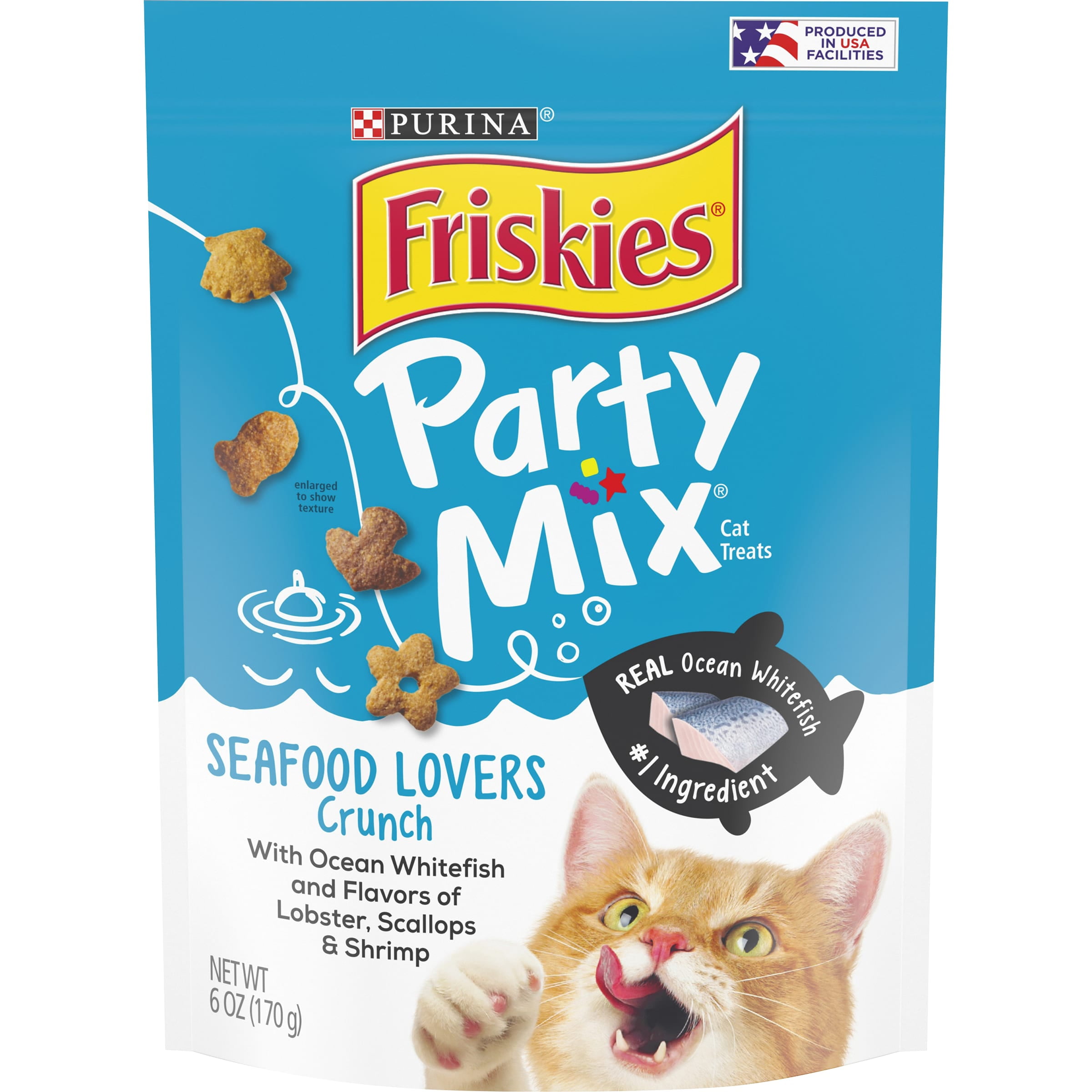
One common concern about fish treats for cats is the potential for them to contain harmful substances such as mercury. Additionally, some cat owners worry that the high levels of protein in fish treats could lead to kidney problems. Another concern is that feeding fish treats to cats could result in an unbalanced diet if not given in moderation. It is important for cat owners to be aware of these concerns and take appropriate precautions when selecting and feeding fish treats to their feline companions.
Types of Fish Treats

There are various types of fish treats available for cats. One popular option is freeze-dried fish treats, which retain the nutritional value and flavor of the fish. These treats are crunchy and easy to store. Another option is grain-free fish treats, which are suitable for felines with grain sensitivities. These treats are made with high-quality fish and other natural ingredients, providing a delicious and nutritious snack for your cat.
Freeze-dried fish treats

Freeze-dried fish treats are a popular choice for cat owners looking to provide their feline friends with a nutritious and tasty snack. These treats are made by removing the moisture from the fish while preserving its flavor, making them a convenient option for cats and their owners. Freeze-dried fish treats retain the natural nutrients found in fish, such as omega-3 fatty acids, which contribute to healthy skin and coat. They are also free from any added grains or fillers, making them suitable for cats with dietary sensitivities.
Grain-free fish treats

Grain-free fish treats are an excellent option for feline friends with specific dietary needs or sensitivities. These treats are specially formulated without any grains, such as wheat or corn, which can be common allergens for cats. By eliminating grains from the formula, these treats provide a protein-rich and easily digestible snack option. Grain-free fish treats often contain high-quality fish as the main ingredient, ensuring a flavorful and nutritious treat for your cat to enjoy.
Benefits of Fish Treats
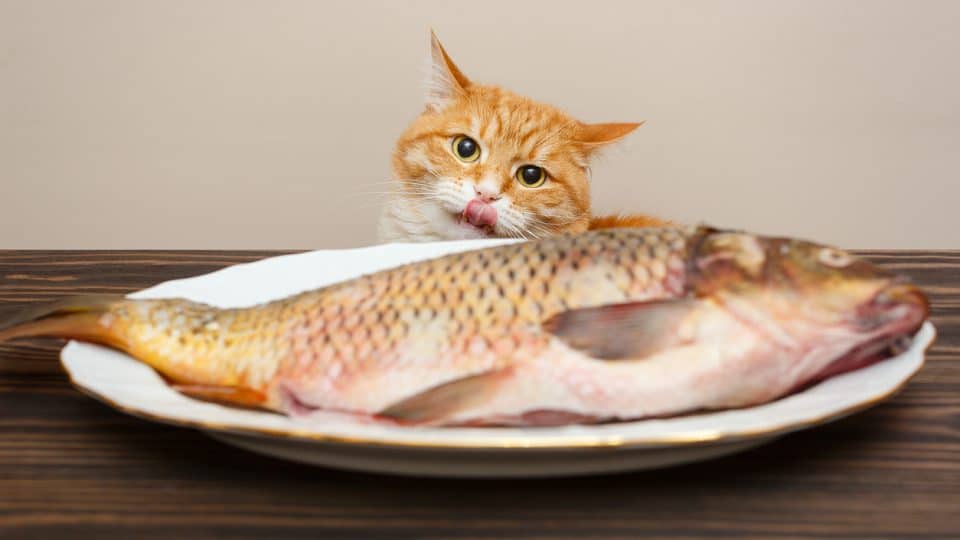
Fish treats are not only delicious for felines but also provide numerous health benefits. One of the main advantages of fish treats is their ability to promote healthy skin and coat. The omega-3 fatty acids found in fish can help reduce inflammation and itching, leading to a shinier coat and less dry skin. Additionally, these treats support cognitive function, helping to keep your furry friend's brain sharp and agile. By incorporating fish treats into your cat's diet, you can enhance their overall well-being and encourage optimal health.
Promoting healthy skin and coat

One of the key benefits of fish treats for cats is their ability to promote healthy skin and coat. Fish is rich in omega-3 fatty acids, which help nourish the skin and maintain a glossy, lustrous coat. These fatty acids also have anti-inflammatory properties that can help alleviate itching and irritation. By incorporating fish treats into your cat's diet, you can support their overall skin health and keep their coat looking its best.
Supporting cognitive function
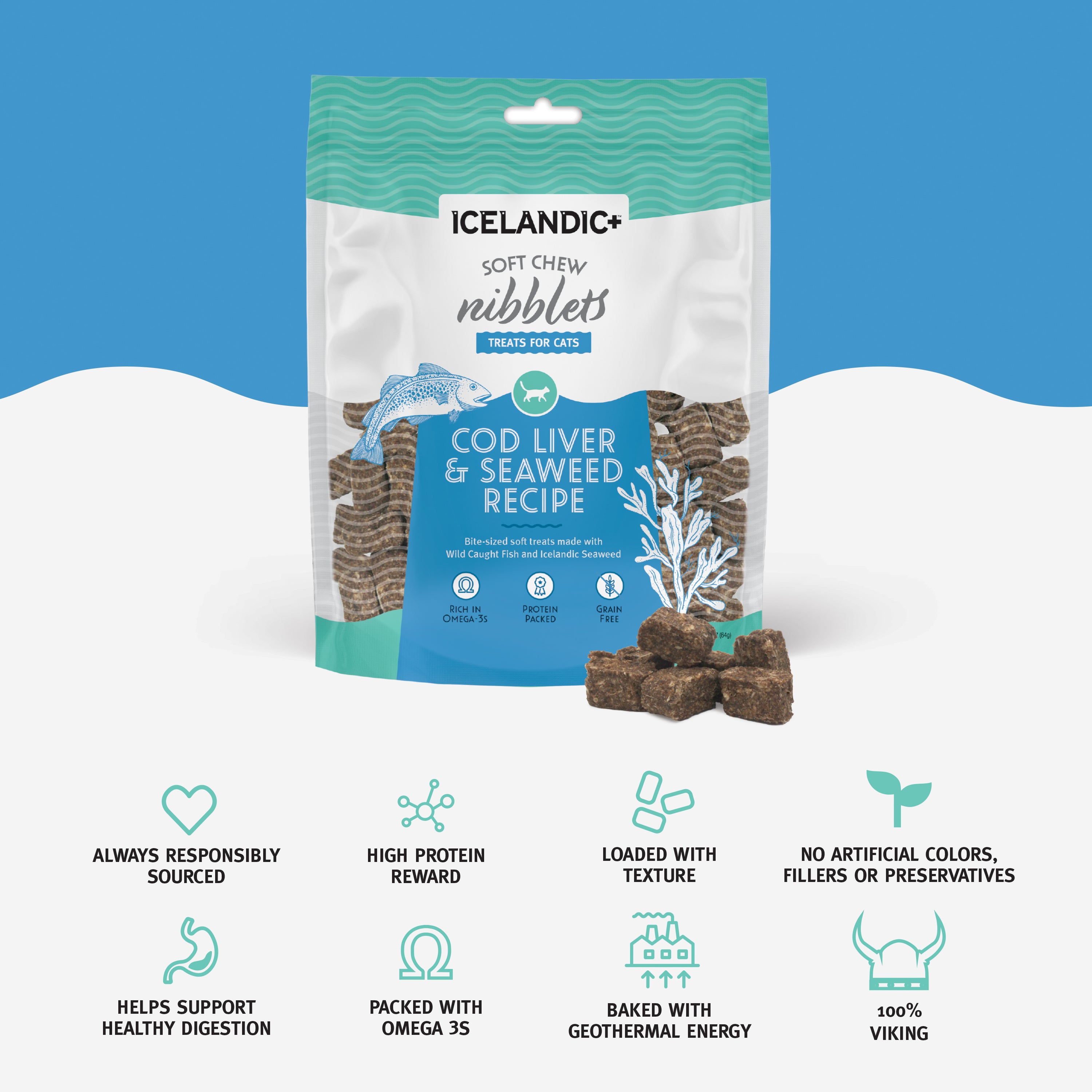
When it comes to supporting cognitive function, fish treats can be a valuable addition to your feline's diet. Fish, such as salmon and whitefish, are rich in omega-3 fatty acids, which have been shown to benefit brain health in cats. These fatty acids help support cognitive function and can contribute to improved memory and learning abilities. By incorporating fish treats into their diet, you can provide your feline friend with the nutrients they need for optimal brain health.
Choosing the Right Fish Treats

When it comes to choosing fish treats for your feline friend, it's important to be selective. Reading ingredient labels is crucial to ensure that the treats are free from fillers, artificial additives, and preservatives. Additionally, considering the source of the fish is essential. Opting for treats made from wild-caught fish or sustainably sourced varieties can provide peace of mind. By being mindful of these factors, you can choose the right fish treats that meet your cat's nutritional needs and preferences.
Reading ingredient labels

is an essential step in choosing the right fish treats for your feline friend. By carefully examining the ingredient list, you can ensure that the treats are made with high-quality ingredients and are free from any potentially harmful additives or fillers. Look for treats that contain real fish as the main ingredient and avoid those that have artificial preservatives, flavors, or colors. Additionally, be cautious of treats that have excessive amounts of added sugars or grains, as these may not provide the nutritional benefits your cat needs.
Considering the source of the fish
When choosing fish treats for your feline friend, it is important to consider the source of the fish. Opt for treats made from high-quality, sustainably sourced fish. Look for labels that indicate the fish comes from reliable sources, such as wild-caught or responsibly farmed options. This ensures that the fish used in the treats is of good quality and free from harmful contaminants. By considering the source of the fish, you can provide your cat with safe and nutritious treats.
Top Fish Treats for Cats

When it comes to choosing fish treats for your feline companion, there are a variety of options available. Two popular choices are Wild Alaskan Salmon treats and Whitefish and Sweet Potato bites. These treats are not only delicious but also packed with nutritional benefits for your cat. The Wild Alaskan Salmon treats offer omega-3 fatty acids for a healthy coat, while the Whitefish and Sweet Potato bites provide a combination of lean protein and fiber.
Wild Alaskan Salmon treats

Wild Alaskan Salmon treats are a popular choice among cat owners due to the numerous health benefits they provide. Rich in omega-3 fatty acids, these treats promote healthy skin and coat, reduce inflammation, and support cardiovascular health. Additionally, Wild Alaskan Salmon treats are made from high-quality fish that is sustainably sourced, ensuring that your feline friend receives the best nutrition while also protecting the environment.
Whitefish and Sweet Potato bites

Whitefish and Sweet Potato bites are a tasty and nutritious option for your feline friends. Made with real whitefish and sweet potatoes, these treats provide a high protein source while also offering the benefits of vitamins and minerals from the sweet potatoes. These bites are grain-free, making them an ideal choice for cats with sensitivities or allergies to grains. They are also freeze-dried, preserving their natural flavors and nutrients for maximum enjoyment by your cat.
Feeding Fish Treats

Moderation is key when it comes to feeding fish treats to your feline friend. While they can be a delicious and nutritious addition to their diet, it's important not to overdo it. A few treats per day is typically sufficient, depending on your cat's size and dietary needs. It's also important to incorporate fish treats into a balanced diet, ensuring they are just a small part of their overall nutritional intake. Remember to consult with your veterinarian for specific recommendations based on your cat's individual needs.
Moderation is key

When it comes to feeding your feline fish treats, moderation is key. While these treats provide numerous benefits for your cat's health, it's important not to overdo it. Offering fish treats in moderation helps prevent any potential dietary imbalances that excessive intake can cause. Remember to follow the recommended feeding guidelines provided by the treat manufacturer or consult with your veterinarian for guidance on how often and how much fish treats should be given to your cat.
Incorporating fish treats into a balanced diet

Incorporating fish treats into a cat's balanced diet can provide them with essential nutrients without compromising their overall nutrition. It is important to ensure that the treats are given in moderation and do not make up a significant portion of their daily food intake. By incorporating fish treats as occasional additions to their regular meals, owners can provide their feline friends with the numerous benefits of fish while maintaining a balanced and healthy diet.
Precautions and Considerations

When it comes to feeding fish treats to cats, there are a few precautions and considerations to keep in mind. One important consideration is that some cats may have allergies to fish. It's essential to monitor your cat for any signs of adverse reactions after introducing fish treats into their diet. Additionally, it's crucial to avoid feeding cats fish with high mercury content, as this can be harmful to their health. To ensure your cat's safety and well-being, it is always best to consult with your veterinarian before introducing new treats into their diet.
Fish allergies in cats
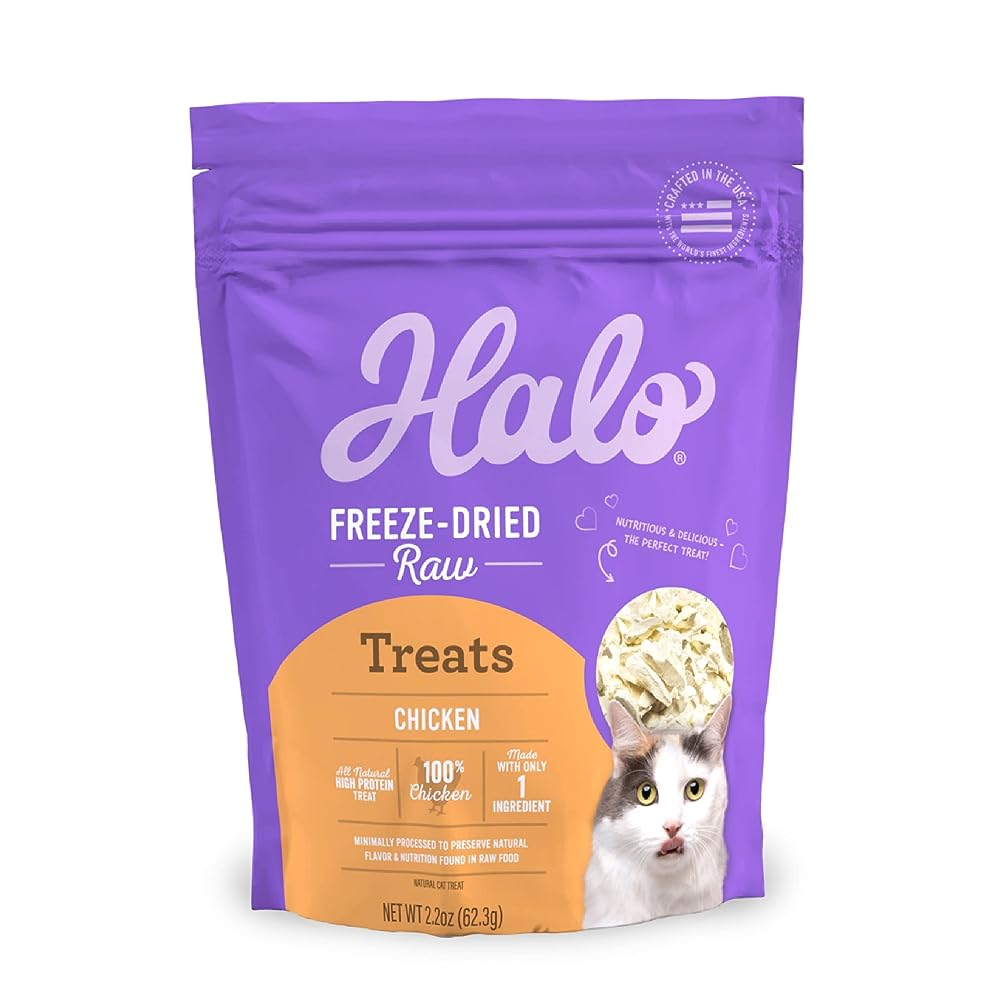
Fish allergies in cats can occur, although they are less common compared to other food allergens. Cats may experience allergic reactions to certain types of fish, such as salmon or tuna. Symptoms of fish allergies in cats can include skin irritations, gastrointestinal upset, and respiratory issues. If you suspect your cat has a fish allergy, it is important to consult with your veterinarian for proper diagnosis and guidance on managing your cat's diet.
Avoiding fish with high mercury content
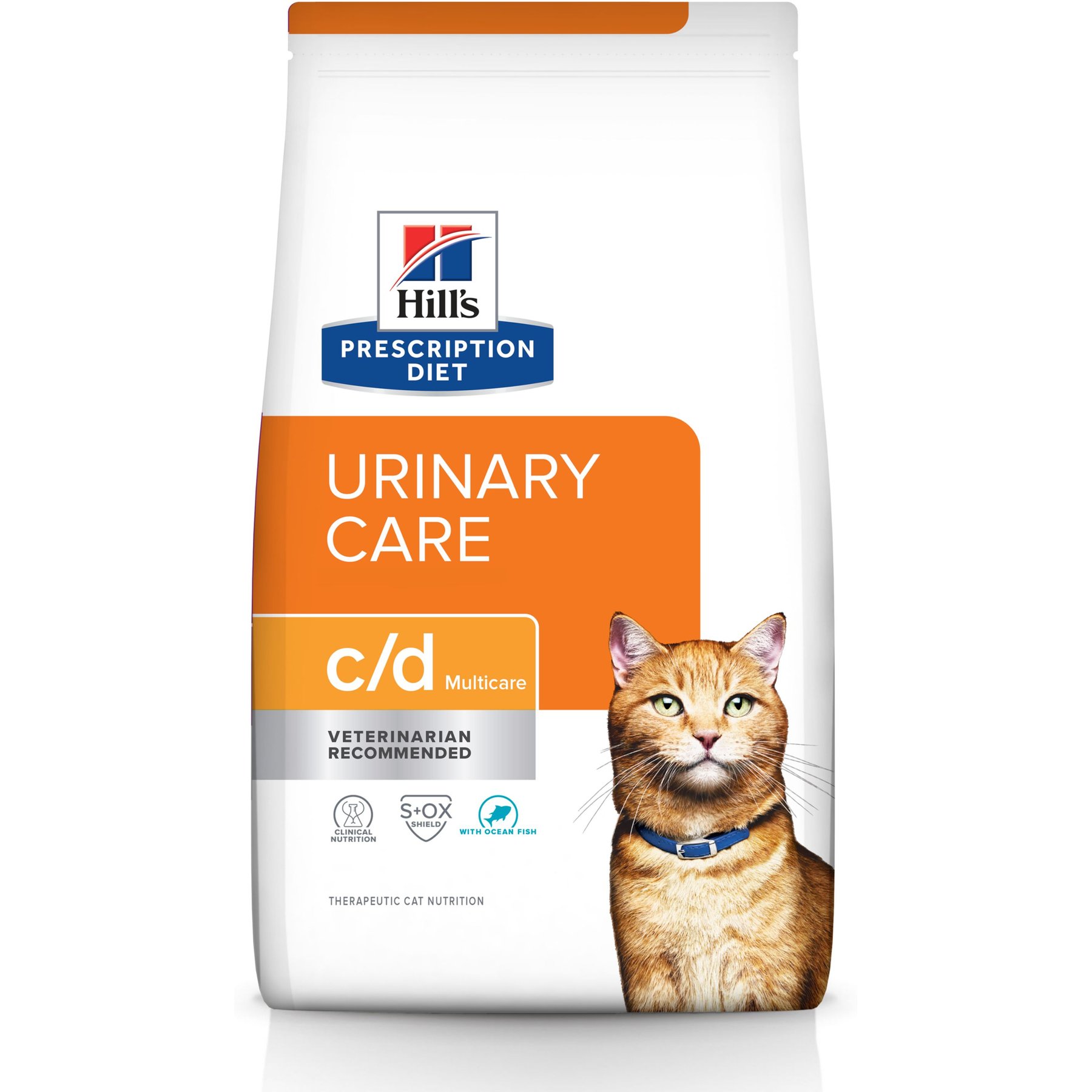
To ensure the safety of your feline friend, it is important to avoid fish treats with high mercury content. Mercury is a toxic heavy metal that can accumulate in fish. Larger and predatory fish tend to have higher levels of mercury. It's best to choose fish treats that are made from smaller and low-mercury fish species, such as salmon or whitefish. Additionally, look for products that undergo testing for mercury levels to further minimize the risk. Always prioritize your cat's health by selecting fish treats that are safe and free from harmful substances.
Homemade Fish Treats

When it comes to treating your feline companion, homemade fish treats can be a great option. They allow you to have control over the ingredients and ensure that your cat is getting wholesome, high-quality fish. By making these treats yourself, you can also experiment with different flavors and textures that your cat may enjoy. However, it's important to follow safe cooking techniques and consult with your veterinarian about any specific dietary needs or restrictions your cat may have.
Simple recipes for homemade fish treats

Creating homemade fish treats for your feline companion is a great way to ensure they are getting a nutritious and delicious snack. One simple recipe involves baking fish fillets until they are cooked through and then cutting them into bite-sized pieces. Another option is to puree cooked fish with a small amount of water or broth, then pouring the mixture into ice cube trays to freeze into individual treats. These homemade fish treats will have your cat purring with delight.
Safe cooking techniques for fish

When preparing fish treats for your feline friend, it's important to follow safe cooking techniques to ensure their health and safety. One recommended technique is baking. Baking the fish helps to retain its natural flavors and nutrients while minimizing the risk of introducing harmful bacteria. Grilling or broiling the fish is another healthy option, as these methods require little to no added oil or fats. Just be sure to cook the fish thoroughly to eliminate any potential pathogens.
Conclusion

In conclusion, incorporating fish treats into your cat's diet can provide numerous nutritional benefits. From promoting healthy skin and coat to supporting cognitive function, fish treats offer a range of advantages for felines. However, it is important to choose the right treats and feed them in moderation. If your cat has any allergies or if you are unsure about the safety of certain ingredients, consulting with a veterinarian is always recommended. So dive into the world of fish treats and give your feline friend a tasty and nutritious treat!
The importance of adding fish treats to your cat's diet

Fish treats can provide important nutritional benefits for your cat. Fish is a natural source of omega-3 fatty acids, which promote healthy skin and coat, support cognitive function, and aid in overall wellbeing. By incorporating fish treats into your cat's diet, you can enhance their health and happiness. However, it's crucial to consult with your veterinarian before introducing any new treats or making significant changes to your pet's diet.
Seeking veterinary advice when introducing new treats

When it comes to introducing new treats into your cat's diet, it is always a good idea to seek veterinary advice. Veterinarians can provide valuable insight into the specific dietary needs of your feline friend, ensuring that the treats you choose are safe and appropriate for them. They can also advise you on any potential allergies or sensitivities your cat may have. By consulting with a veterinarian, you can ensure that you are making the best choices for your cat's overall health and well-being.




0 Comments